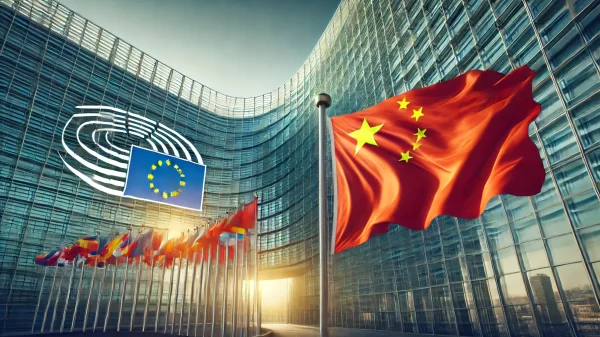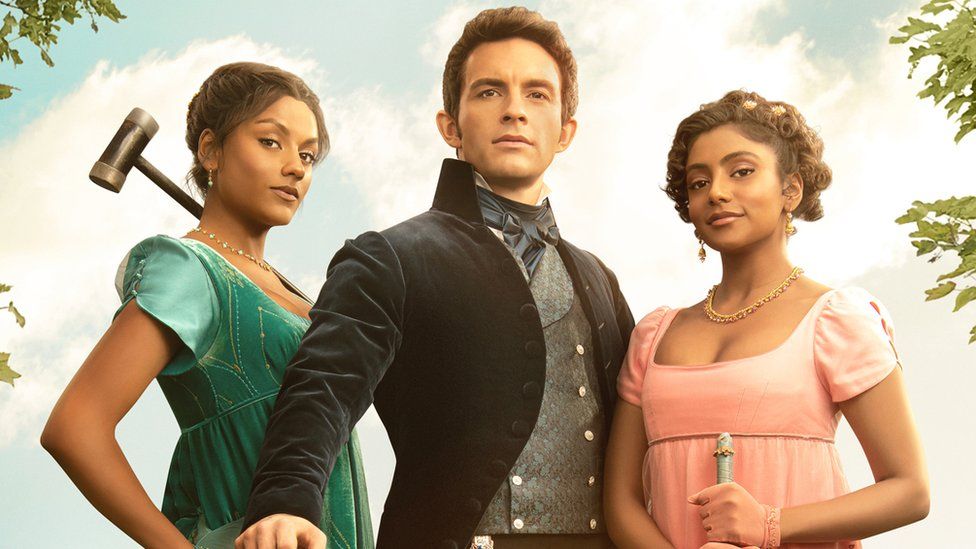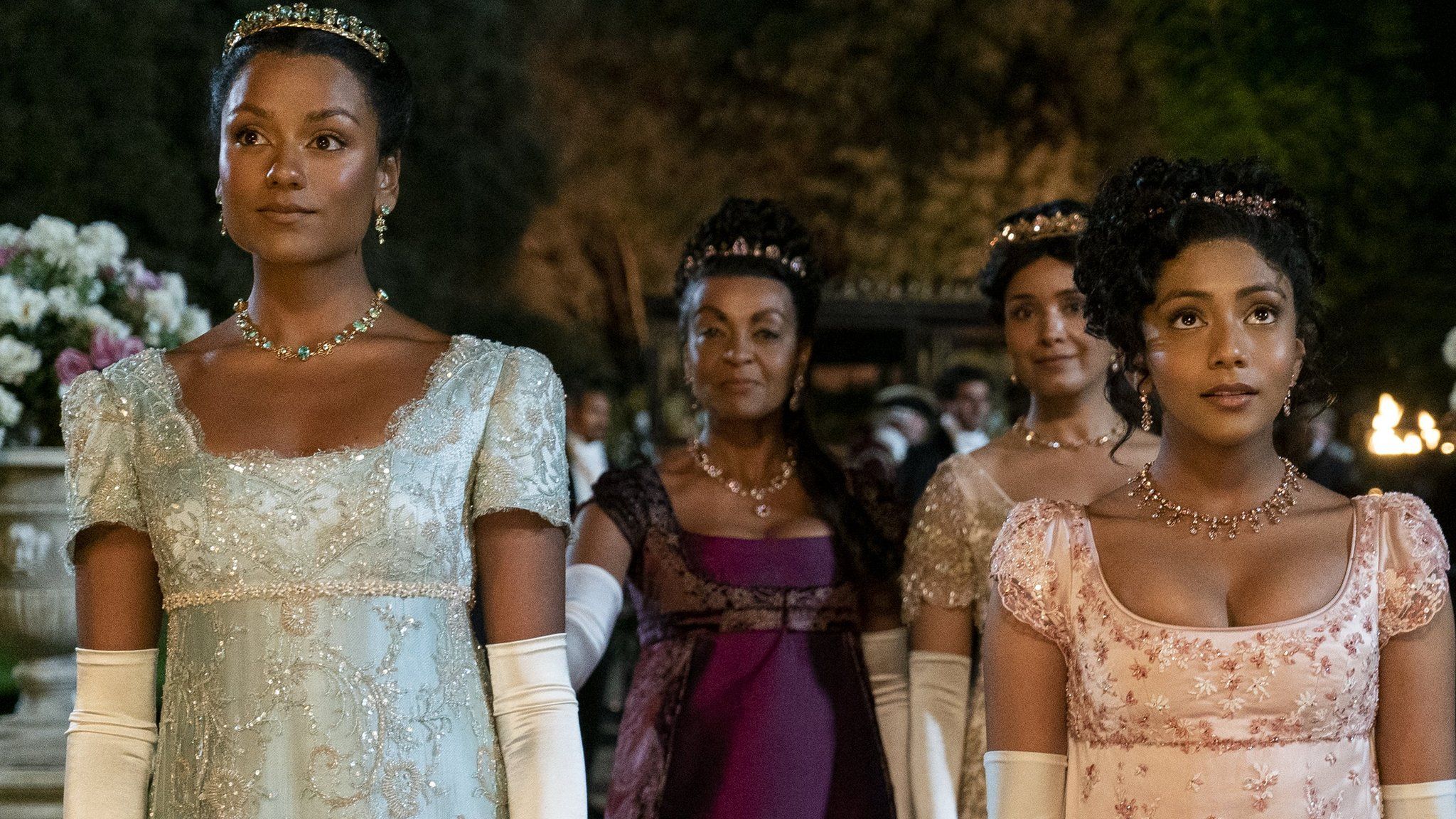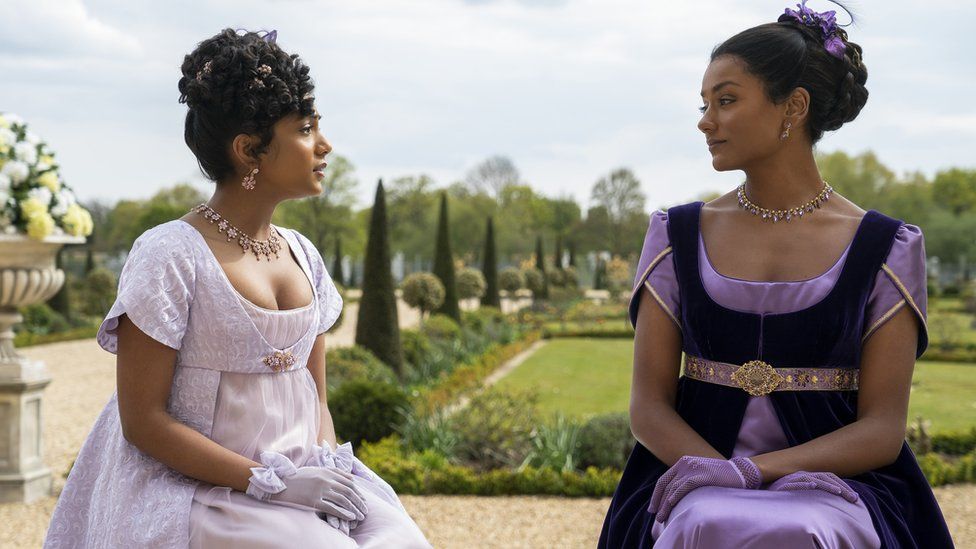“Have you read Ghaleeb?” Edwina Sharma asks a suitor vying for her hand in the latest season of Netflix’s hit period drama Bridgerton.
The mention of Mirza Ghalib, a celebrated 19th Century Urdu poet, was one of the show’s many attempts to emphasise the Indian origins of the heroines, Kate and Edwina Sharma, played by British-Indian actors Simone Ashley and Charita Chandra, respectively.
But despite, or perhaps because, of the references – bangles, Indian-ish embroidery, masala chai, a melodramatic tune from the Bollywood blockbuster Kabhi Khushi Kabhie Gham, even a Hindu wedding tradition – Bridgerton has raised a fair number of mocking eyebrows.
And, with two brown heroines in early 19th Century London, it has drawn criticism for being careless with details and glossing over race and colonialism.
While the Indian diaspora has mostly welcomed seeing someone who looks like them on screen, the show has left people in India with mixed feelings, from amusement to irritation to disappointment.
Even as the diaspora grows, and tells its own stories in Hollywood and on Netflix, Amazon, HBO and Hulu, Western shows nevertheless seem to rely on easy stereotypes when it comes to representing India itself.
South Asians on screen
With entertainment industries in several languages thriving in the country, Indians have never really looked to the West for representation on the screen.
Audiences have usually reserved their harshest criticism for media made at home. They are more likely to critique the way a southern Indian character is portrayed in a Bollywood film than take aim at Apu in The Simpsons.
And until a decade ago, Indians in Western productions were mostly crossover stars – from Shashi Kapoor and Kabir Bedi to Irrfan Khan and Priyanka Chopra.
But that changed with the rise of Indian-origin creators and showrunners in the West, especially in the US.
Actor and writer Mindy Kaling, who made The Mindy Project and the Netflix hit Never Have I Ever, has been one of the most visible entertainment industry figures trying to expand the space for Indian-origin creators – and stories about their identity. Comedians such as Lilly Singh, Hasan Minhaj and Hari Kondabolu, even brought the the Indian-American/Canadian experience into the comedy scene and political satire.
As the audience began using social media to call on storytellers to reflect real-life diversity on screen, YouTube and streaming platforms took these shows, which were inherently American or Canadian, all over the world.
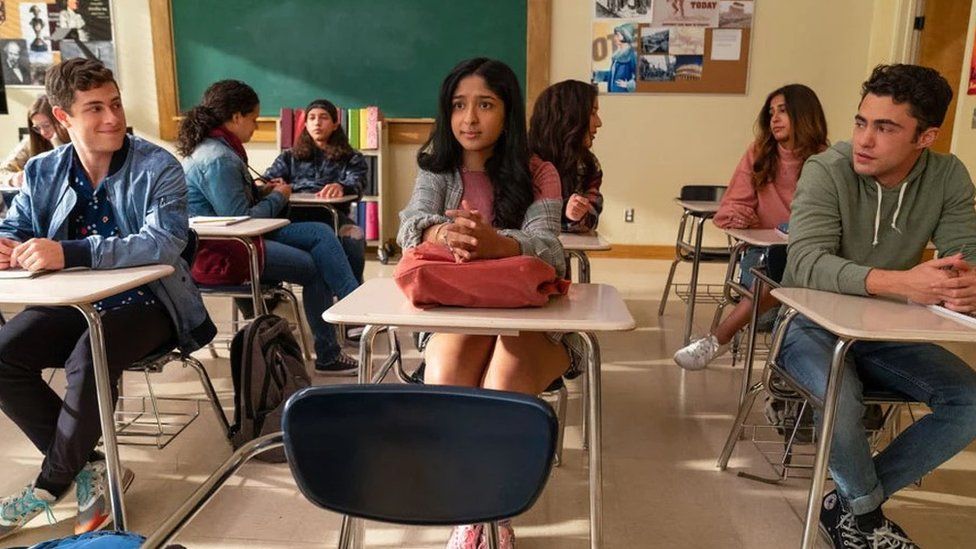
But Bridgerton’s season two has defied those boundaries by seeking to tell the story of Indians in Britain for the diaspora, but through a markedly foreign lens.
“It’s exciting to see how romance and media have progressed over the last decade alone… but we are so, so far from it being enough,” Indian-American romance writer Alisha Rai said.
“With so few examples of decent representation what seems to always end up happening is that the community wants every snippet of representation to be everything to everyone and that’s simply not possible for the handful of showrunners and writers who manage to get to the finish line with South Asian characters,” she added.
Bridgerton’s stylised, sexy take on Regency Britain has won fans, even grudging ones.
Even in the first season, which featured a black duke as its hero, it didn’t really delve into how he got there, avoiding any mention of slavery or race. It does the same in its second season, where it tells the story of an Indian family visiting London to find an aristocratic match for their youngest daughter. They have arrived from Bombay but we know little else about their life in India.
What’s most amusing about Bridgerton is seeing a Netflix show fall back on tropes that Bollywood is slowly leaving behind – a love based on breathless attraction, an obsession with marriage and ornate bangles that only fit the hero’s one true love.
Whose story does Bridgerton tell?
The diaspora has praised showrunner Shonda Rhimes’ choice to cast dark-skinned Indian-origin women as the show’s heroines.
“The Indian movie industry should be hanging its head in shame for holding on to archaic casting practices based on colourism while a Tamil woman… is being celebrated for her talent and her stunning beauty across the rest of the world,” an Indian-American woman wrote on Facebook.
Ashley and Chandra have both spoken about how the roles were personally important to them. “No-one let me forget that I was dark-skinned growing up,” Chandra told spoke to Teen Vogue. Ashley said in an interview that “it’s wonderful that more South Asian women can identify themselves within these characters”.
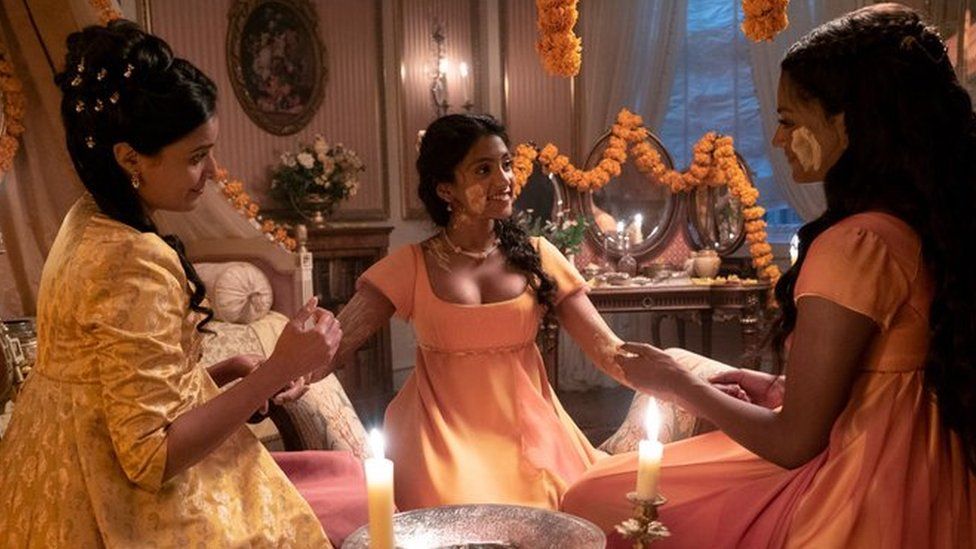
But not everyone is impressed.
Some were amused by how the script used words from different languages – didi (Hindi for sister), bon (Bengali for sister) and appa (Tamil for father) – leaving them confused as to which part of India the family came from.
Another wondered at the use of the northern Indian caste name Sharma for a family that spoke Marathi, a language from the western state of Maharashtra.
Even the scene where Kate brews herself a cup of masala chai drew criticism, with Indians ridiculing the way she does it. In a classic Twitter move, someone even pointed out it was discomfiting to see so many references to a beverage that traced its origins to the exploitation of tea plantation workers in India during British rule.
“I do not expect costume/period drama to be historically accurate but there is something deeply pernicious about creating a past so completely shorn of enslavement, empire and genocide when legacies – and continued versions – of those continue to harm (and kill) people today,” writer and academic, Sunny Singh, said on Twitter.
Bridgerton is happy to interrogate patriarchy but not the potential tensions between its characters who are black, brown and white. But the colour of skin, which the show ignores, is hard to ignore in the viewing experience.
Can one watch a white grandfather tower over his brown granddaughter, screaming he will disinherit her, and accept that this power equation is merely sexist?
It’s hard not to think of the notions of purity built into Hinduism’s unyielding caste system when you see a brown mother deriding her daughter for “polluting” the family with her love affair, especially since the man she eloped with was not from the aristocracy.
Between history and fantasy
“Bridgerton’s alternative reality is a place where people of colour can exist and experience love and joy and complicated relationships without the trauma that history brings of oppression, colonialism, and racism,” said Nisha Sharma, a romance writer who was inspired by Julia Quinn, author of the Bridgerton books.
She praises the show’s efforts towards authenticity, “from the jewellery, to the haldi ceremony, the hair oil massage, to the music, the cardamom tea, the use of Kate’s full name at the end of the show, and the slight change in accent when the sisters speak to each other compared to when they speak to someone who is British”.
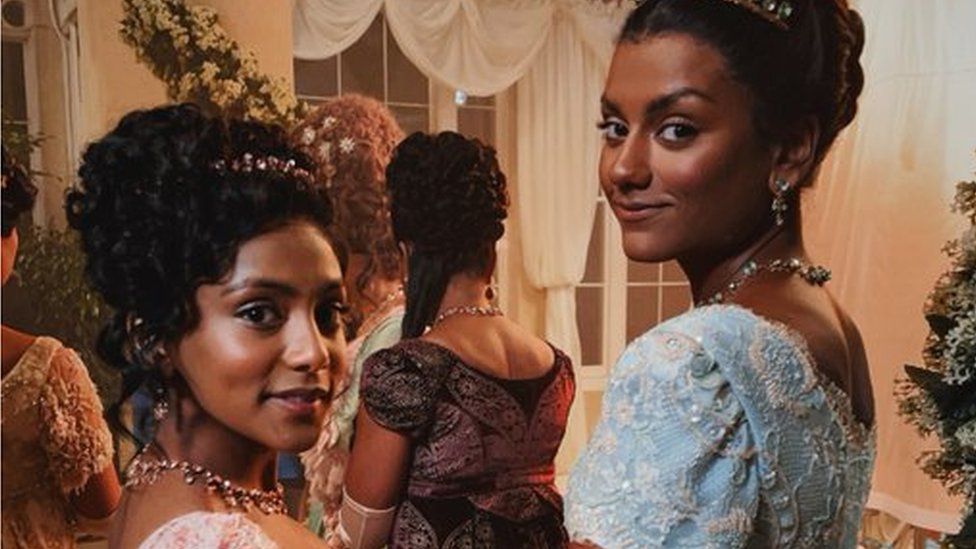
But is it enough to simply place Indians among British aristocracy?
For the second season, showrunner Chris Van Dusen said he worked with historians, consultants and a diverse group of writers to be as authentic as possible.
That, Ms Sharma said, still doesn’t change the fact that the show is “told through a white lens”.
She added that the South Asian stories told on global media platforms should “showcase authentic experiences and identities”, especially since much of the attention so far has gone to Bollywood-like representations which tend to focus on northern India.
“That means highlighting the originality and beautiful stories that exist in other marginalised communities within South Asia. As important as the alternate reality shared by Bridgerton is, the truth is also important.”

You may also be interested in:
This video can not be played
To play this video you need to enable JavaScript in your browser.








